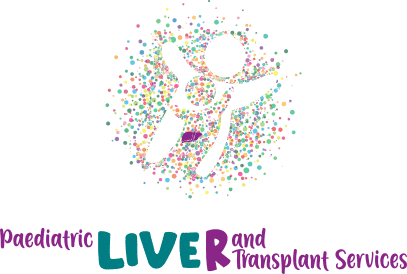Introduction
Alagille Syndrome (ALGS) is a rare, multisystem genetic disorder that primarily affects the liver, heart, and other organs. Caused by mutations in the JAG1 or NOTCH2 genes, ALGS presents unique challenges in diagnosis, management, and long-term outcomes. As health professionals, understanding this complex condition is critical for early intervention and optimizing patient care.
Understanding the Genetics and Pathophysiology
ALGS is an autosomal dominant disorder, with mutations impacting the Notch signaling pathway, crucial for embryonic development. The hallmark feature is bile duct paucity, leading to cholestasis and progressive liver disease. However, ALGS extends beyond the liver, often involving:
✅ Cardiovascular anomalies – Pulmonary artery stenosis, Tetralogy of Fallot
✅ Skeletal abnormalities – Butterfly vertebrae
✅ Ophthalmologic findings – Posterior embryotoxon
✅ Renal and vascular anomalies – Renal dysplasia, intracranial bleeds
✅ Characteristic facies – Prominent forehead, deep-set eyes
Clinical Presentation: When to Suspect ALGS
The classic presentation includes cholestasis with jaundice and pruritus in infancy, often accompanied by growth failure and cardiac murmurs. Key signs to consider include:
🟠 Persistent neonatal jaundice beyond 2 weeks
🟠 Severe pruritus (often unresponsive to standard therapies)
🟠 Cardiac defects (murmur, cyanosis, or confirmed congenital heart disease)
🟠 Dysmorphic facial features
🟠 Butterfly vertebrae on imaging
Diagnosis: Key Investigations
Definitive diagnosis requires a combination of clinical, histological, and genetic testing:
🔍 Liver biopsy – Confirms bile duct paucity
🧬 Genetic testing – Identifies JAG1 or NOTCH2 mutations
🔬 Cholestasis workup – Excludes other causes like biliary atresia
🩺 Echocardiogram – Assesses for congenital heart defects
🦴 Skeletal X-rays – Identifies butterfly vertebrae
👁️ Ophthalmologic exam – Checks for posterior embryotoxon
Disease Progression and Complications
The clinical trajectory of ALGS is highly variable. Liver involvement can range from mild cholestasis to end-stage liver disease requiring transplantation. Up to 30% of patients develop advanced liver disease by age five. Other complications include:
⚠️ Severe cholestatic pruritus
⚠️ Fat-soluble vitamin deficiencies (A, D, E, K)
⚠️ Intracranial vascular malformations with risk of stroke
⚠️ Progressive cardiac disease requiring intervention
Management and Treatment Options
There is no cure for ALGS, and treatment focuses on symptom management and organ-specific interventions.
💊 Medical Management
- Cholestasis control: Ursodeoxycholic acid (UDCA), rifampicin, cholestyramine, or IBAT inhibitors like maralixibat
- Nutritional support: High-calorie intake and fat-soluble vitamin supplementation
- Pruritus relief: Antihistamines, bile acid sequestrants, or IBAT inhibitors
- Cardiac surveillance: Regular echocardiograms and potential interventions
- Neurological monitoring: Screening for vascular anomalies and stroke risk
🩺 Surgical & Advanced Interventions
- Liver Transplantation: Indicated for intractable pruritus or progressive liver failure
- Cardiac Surgery: For congenital defects requiring intervention
Recent Advances and Research
💡 The Global Alagille Alliance (GALA) Study is actively working to improve understanding of disease progression and treatment responses.
💡 Emerging therapies like IBAT inhibitors are showing promise in managing cholestatic pruritus.
💡 Gene therapy and regenerative medicine may offer future treatment possibilities.
Conclusion: The Role of Health Professionals
As paediatricians, hepatologists, cardiologists, and allied healthcare providers, early recognition and a multidisciplinary approach are essential for optimizing outcomes in ALGS. Referral to specialized centers with experience in paediatric liver disease and transplantation is crucial, particularly in South Africa, where expertise is limited.
📢 On Rare Disease Day and beyond, let’s raise awareness and advocate for better care pathways for children with ALGS!
Rare but Real: The Alagille Syndrome Story
Podbean
MEDED Accredited Page
Spotify
#AlagilleSyndrome #PaediatricLiverDisease #RareDiseaseAwareness #LiverTransplant #MedicalEducation

